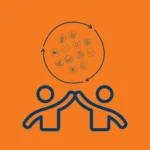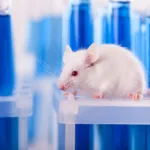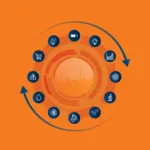
The European chemical industry is committed to contributing to sound management of chemicals and waste globally and supporting developing countries in their journey. As an active stakeholder in the Strategic Approach to International Chemicals Management (SAICM), Cefic plays a leading role in global regulatory cooperation.
Speaking at the 2021 Helsinki Chemical Forum in April 2021, on behalf of the International Council of Chemical Associations (ICCA), Servet Goren, Cefic Director International Affairs, outlined how to address and enhance global safe management pointing out that data sharing and digital tools will be essential components of this work: “We need further collaboration among the SAICM stakeholders such as Capacity Building and Regulatory Cooperation initiatives through ICCA, and use the available chemicals data to support developing countries in their journey towards the sound management of chemicals and waste, while improving the existing data portals to directly support basic chemicals infrastructures globally”. Cefic and ICCA have a leading role in global regulatory cooperation focusing in particular on South East Asia and Latin America, where the industry helps local regulators with GHS implementation, inventory building and prioritizations of hazardous chemicals. Cefic on behalf of ICCA is also currently discussing with the European Commission and UNEP an ambitious 4-year project to implement GHS in four African countries.
In this context, together with the United Nations Environment Program (UNEP), the chemical industry is developing an e-learning module which includes training to help developing countries extract the most relevant Environment, Health and Safety (EHS) information on chemical substances from different databases and portals. Cefic also encourages developing countries to use the MAD (Mutual Acceptance of Data) Agreement and follow GLP (Good Laboratory Practices) Principles, by the Organization for Economic Cooperation and Development (OECD).
Additionally, Goren highlighted that it would be important to make existing global Capacity Building efforts more efficient and effective and to allow developing countries to benefit from the expertise, knowledge and information sharing from other SAICM stakeholders on a more structured and holistic manner. To this end, the new SAICM model should embed a “Capacity Building Clearinghouse”, “a common place where all capacity building activities come together and act as an intermediary between a country with capacity building needs and a donor country and/or other stakeholders”, she said.
Background information
Well before governments adopted the 2030 Agenda for Sustainable Development in 2015, Heads of State at the 2002 World Summit on Sustainable Development in Johannesburg called for the development of a Strategic Approach to International Chemicals Management (SAICM). In 2006, governments adopted the SAICM Dubai Declaration, stating: “The sound management of chemicals is essential if we are to achieve sustainable development, including the eradication of poverty and disease, the improvement of human health and the environment and the elevation and maintenance of the standard of living in countries at all levels of development.”











